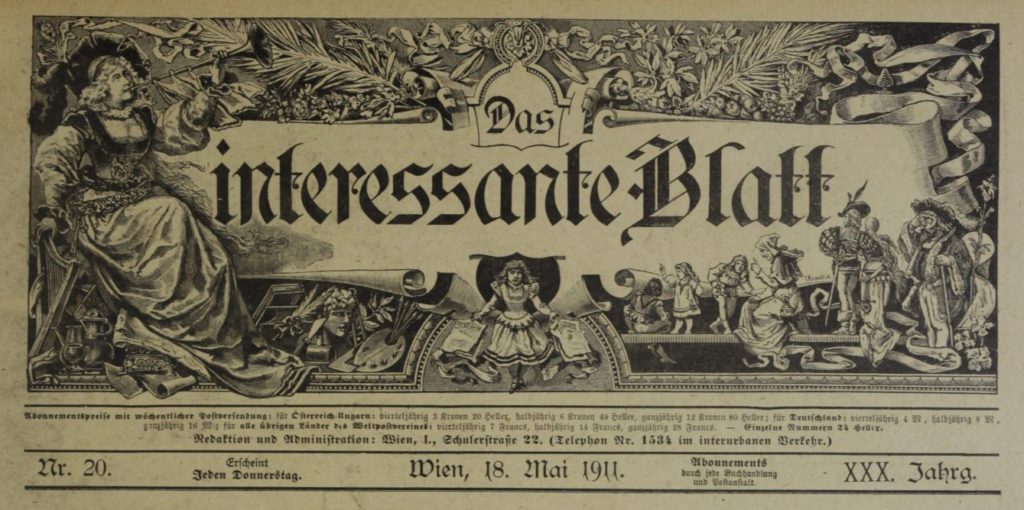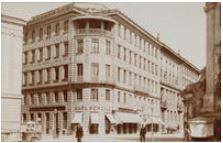- Arnold Josef Rose (1863-1946) (violin).
- Eduard Rose (1859-1943) (cello).
The Rosé Quartet (Quartett) was a string quartet formed by Arnold Josef Rose (1863-1946) in 1882. It was active for 55 years, until 1938. Its members changed over time. Until 1938.
Rosé was first violin throughout. Julius Egghard Jr. played the second violin at first; then it was Albert Bachrich, until 1905 when Paul Fischer joined. Violist was initially Anton Loh, then Hugo von Steiner until 1901 when Anton Ruzitska came on; after 1920, Max Handl played the viola. Eduard Rose (1859-1943), Arnold’s brother, had been a founding member of the ensemble playing the cello, but left after one season to get married and was replaced by Reinhold Hummer, who was in turn replaced by Friedrich Buxbaum; cellist Anton Walter joined in 1921, but later on Buxbaum rejoined.
The group’s peak period was between 1905 and 1920, with Rosé, Fischer, Ruzitska, and Buxbaum. The quartet’s repertoire was based around the works of Haydn, Mozart and Beethoven, but many contemporary composers also benefited from the quartet’s support, including Arnold Schoenberg.
The group participated in the Vienna premieres of works by Johannes Brahms (1833-1897), including his Clarinet Quintet and his Quintet in G major Opus 111. It also premiered Arnold Schoenberg (1874-1951) first and second string quartets and participated in the premiere of Verklärte Nacht along with two members of the Vienna Philharmonic Orchestra: Franz Jelinek, viola, and Franz Schmidt, violoncello. Among the quartet’s performing collaborators were Julius Röntgen, Johannes Brahms (1833-1897), Franz Steiner, Bruno Walter (1876-1962) and Richard Mühlfeld. The quartet also made recordings.
Instrument, name and period:
- Violine: Arnold Josef Rose (1863-1946) (1882-1945).
- Violine: Julius Egghard d. J. (1882-1883), Anton Loh (1884-1889), August Siebert (1890-1896), Albert Bachrich (1897-1904), Paul Fischer (1905-1938).
- Viola: Anton Loh (1882-1883), Sigismund Bachrich (1884-1894), Hugo von Steiner (1895-1901), Anton Ruzitska (1901-1929), Max Handl (1930-1933), Julius Stwertka (1934-1938).
- Violoncello: Eduard Rose (1859-1943) (1882-1883), Reinhold Hummer (1884-1900), Friedrich Buxbaum (1901-1920), Anton Walter (1921), Friedrich Buxbaum (1922-1945).
Year 1883. Rose Quartet. Founding members: Arnold Josef Rose (1863-1946) (top, violine), Julius Egghard Jr. (left, second violine), Anton Loh (right, viola), Eduard Rose (1859-1943) (bottom, violoncello).
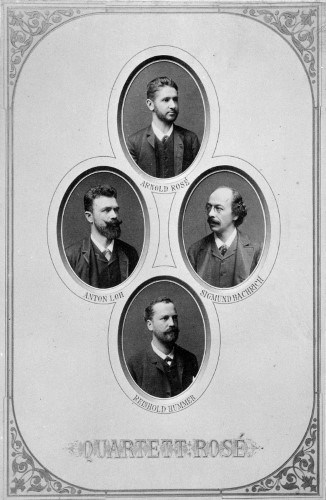
Year 1883. Rose Quartet. Arnold Josef Rose (1863-1946) (top, violine), Anton Loh (left, viola), Sigmund Bachrich (right, second violine), Reinhold Hummer (bottom, violoncello).
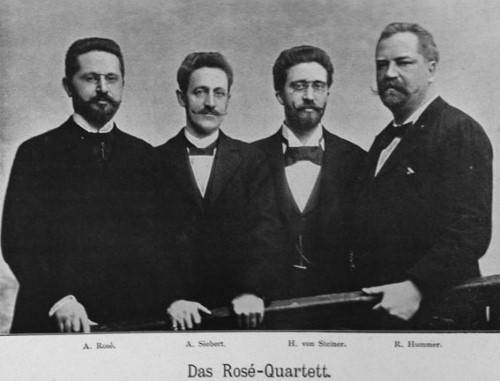
Year 1901. Rose Quartet. Arnold Josef Rose (1863-1946) (violine), August Siebert (second violine), Hugo von Steiner (viola), Reinhold Hummer (violoncello).
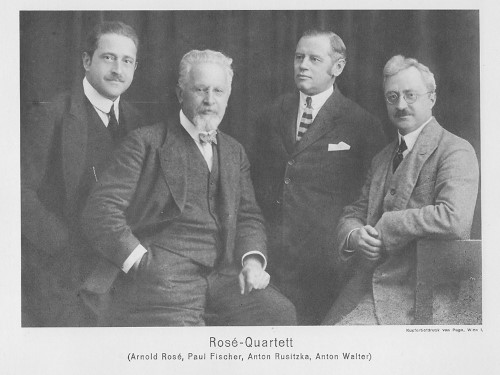
Year 1920: Rose Quartet. Arnold Josef Rose (1863-1946) (violine), Paul Fischer (second violine), Anton Rusitzka (viola), Anton Walter (violoncello).
Rose Quartet. Paul Fischer, Julius Stwertka, Arnold Josef Rose (1863-1946), Friedrich Buxbaum.
Rose Quartet. Anton Ruzitska, Arnold Josef Rose (1863-1946), Anton Walter, Paul Fischer.
Rose Quartet. Lotte Lehmann (1888-1976), Paul Fischer, Arnold Josef Rose (1863-1946), Hietz (?)
Rose Quartet. Arnold Mahler (1869-1871) and Paul Fischer.

